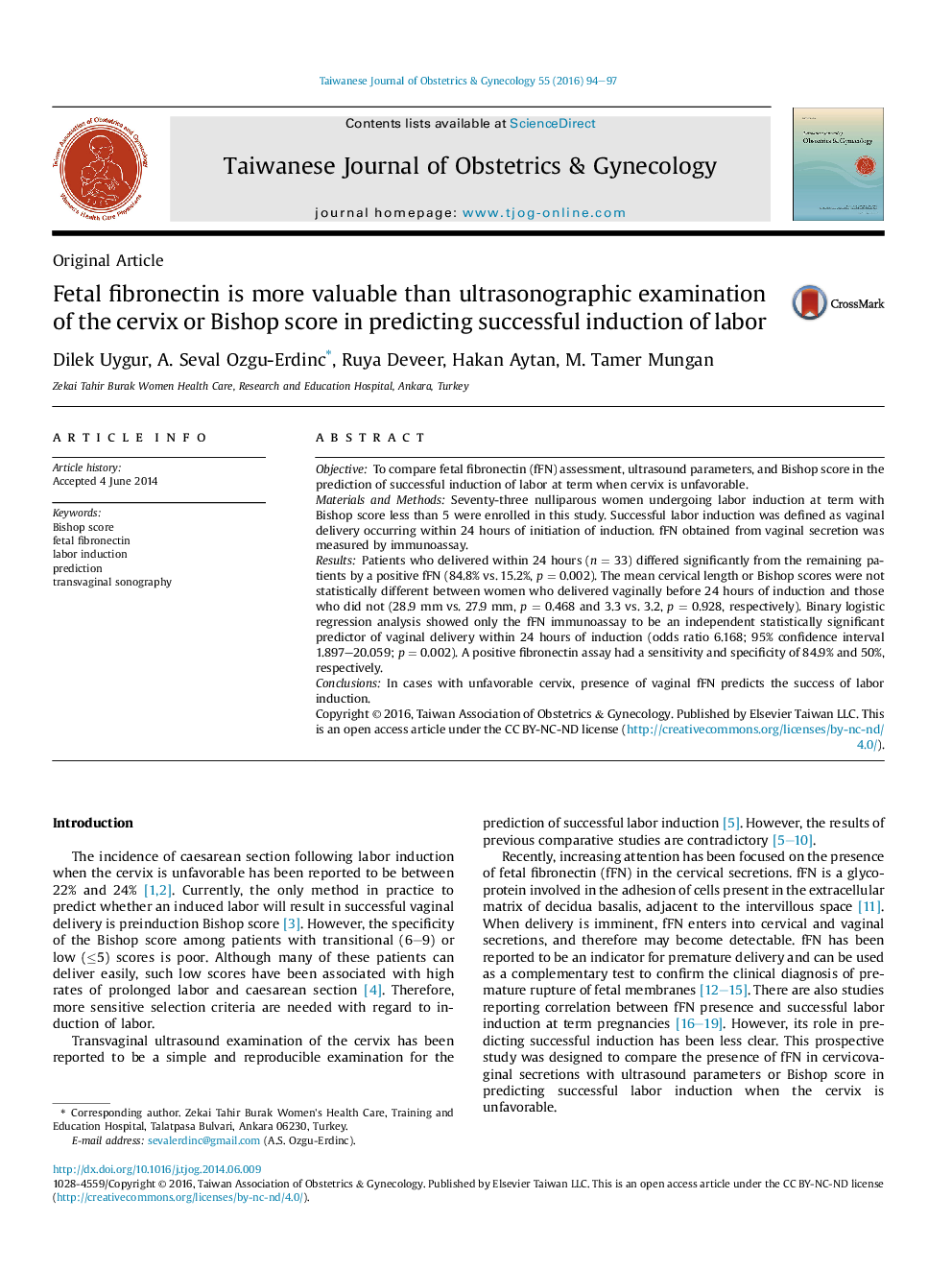| Article ID | Journal | Published Year | Pages | File Type |
|---|---|---|---|---|
| 3975022 | Taiwanese Journal of Obstetrics and Gynecology | 2016 | 4 Pages |
ObjectiveTo compare fetal fibronectin (fFN) assessment, ultrasound parameters, and Bishop score in the prediction of successful induction of labor at term when cervix is unfavorable.Materials and MethodsSeventy-three nulliparous women undergoing labor induction at term with Bishop score less than 5 were enrolled in this study. Successful labor induction was defined as vaginal delivery occurring within 24 hours of initiation of induction. fFN obtained from vaginal secretion was measured by immunoassay.ResultsPatients who delivered within 24 hours (n = 33) differed significantly from the remaining patients by a positive fFN (84.8% vs. 15.2%, p = 0.002). The mean cervical length or Bishop scores were not statistically different between women who delivered vaginally before 24 hours of induction and those who did not (28.9 mm vs. 27.9 mm, p = 0.468 and 3.3 vs. 3.2, p = 0.928, respectively). Binary logistic regression analysis showed only the fFN immunoassay to be an independent statistically significant predictor of vaginal delivery within 24 hours of induction (odds ratio 6.168; 95% confidence interval 1.897–20.059; p = 0.002). A positive fibronectin assay had a sensitivity and specificity of 84.9% and 50%, respectively.ConclusionsIn cases with unfavorable cervix, presence of vaginal fFN predicts the success of labor induction.
